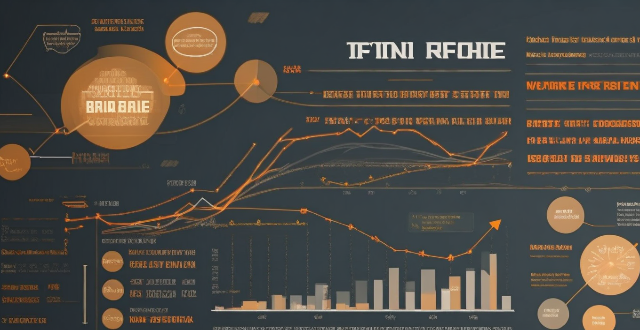Inflation significantly impacts bond investments by decreasing purchasing power, increasing interest rate risk, creating opportunity costs, and affecting fixed-income investors. Inflation-indexed bonds can mitigate these effects.

How Inflation Impacts Bond Investments
Inflation is a term used to describe the rate at which the general level of prices for goods and services is rising, leading to a decline in purchasing power. It has a significant impact on various aspects of the economy, including bond investments. Here's how:
1. Decreased Purchasing Power
The primary effect of inflation on bond investments is that it reduces the purchasing power of the returns generated by those investments. This means that even if your bond investment generates a positive return, the real value of that return (i.e., what you can actually buy with it) may be less than what you initially invested due to inflation.
### Real vs. Nominal Returns
- **Nominal Return**: The return you earn from your bond investment without adjusting for inflation.
- **Real Return**: The actual purchasing power of your returns after adjusting for inflation.
2. Interest Rate Risk
Bonds typically have fixed interest rates, meaning the interest payments you receive from your bonds are set at the time of purchase. If inflation increases, central banks may raise interest rates to combat it. This can make new bonds more attractive than existing ones, as they offer higher interest rates. As a result, the value of your existing bonds may decrease because investors will prefer the newer bonds with higher yields.
### Interest Rate Risk Example
- You purchase a bond with a 3% interest rate.
- Inflation rises, and the central bank raises interest rates to 5%.
- New bonds now offer a 5% interest rate, making your 3% bond less attractive.
- The value of your bond decreases as investors move towards the newer, higher-yielding bonds.
3. Opportunity Cost
Investing in bonds during periods of high inflation can also lead to a significant opportunity cost. This is because other asset classes, such as stocks or real estate, may provide better returns during inflationary periods. By investing in bonds, you may miss out on the potential gains from these alternative investments.
### Opportunity Cost Example
- You invest $10,000 in a bond with a 2% interest rate.
- Over the same period, the stock market provides an average return of 8%.
- Your bond investment grows to $10,200, while a similar investment in the stock market would have grown to $10,800.
- The opportunity cost of investing in bonds instead of stocks is $600.
4. Impact on Fixed-Income Investors
For investors who rely on fixed income from their investments, such as retirees, inflation can be particularly problematic. As inflation rises, the purchasing power of their fixed income decreases, potentially affecting their standard of living.
### Impact on Retirees
- A retiree receives a monthly income of $2,000 from their bond investments.
- With 2% annual inflation, their purchasing power decreases by $40 each month.
- Over a year, this amounts to a loss of $480 in purchasing power.
5. Inflation-Indexed Bonds
One way to mitigate the impact of inflation on bond investments is through inflation-indexed bonds. These bonds adjust their principal and interest payments based on the rate of inflation, providing protection against the eroding effects of inflation on purchasing power.
### Benefits of Inflation-Indexed Bonds
- They offer protection against inflation by adjusting payments based on inflation rates.
- They provide a more predictable real return for investors.
- They are particularly useful for investors seeking to preserve the purchasing power of their investments.
In conclusion, inflation has a significant impact on bond investments by reducing purchasing power, increasing interest rate risk, creating opportunity costs, and affecting fixed-income investors. However, strategies like investing in inflation-indexed bonds can help mitigate these effects.